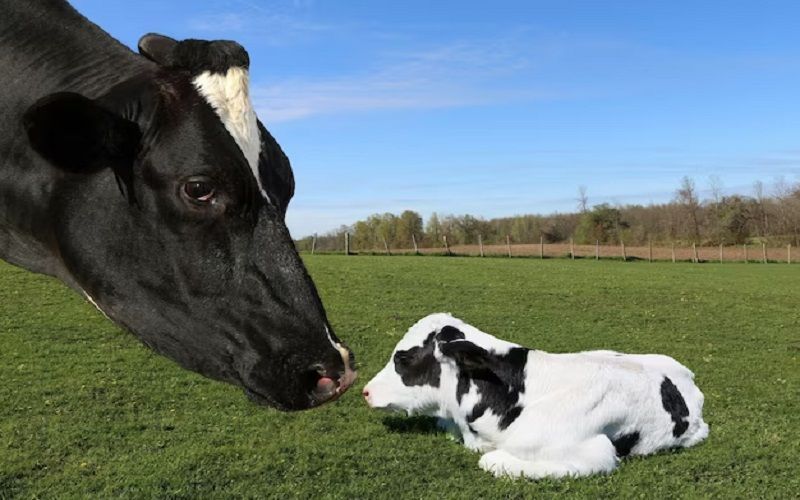Understanding Retained Placentas in Cows and Its Impact

Retained Placenta Defined: The term “retained cleanings”, also known as retained fetal membrane or retained placenta, refers to the condition where the calf’s side of the placenta fails to detach from the cow's side after calving.
Normal Expulsion Time: Typically, cows expel their placental membranes within three to eight hours post-calving. If not expelled within 24 hours, the condition may require intervention to avoid complications.
Characteristics and Concerns: Retained placentas can manifest visibly as discolored, foul-smelling membranes hanging from the cow's vulva for more than 24 hours. They can also remain undetected within the uterus, becoming apparent through a foul-smelling discharge.
Economic and Health Implications: Retained cleanings can be costly, affecting the cow's ability to become pregnant again and reducing milk production efficiency. Farmers may face increased veterinary and medication expenses and the risk of additional health issues in the herd.
Potential Health Risks Associated with Retained Placentas
- Ketosis
- Metritis
- Mastitis
- Increased infertility
- Higher veterinary costs
Management and Treatment: In cases of retained placentas, isolating the affected cow in a clean environment for observation is recommended. Manual removal is discouraged due to potential harm. Treatment may include antibiotics, although these should be used judiciously as they can delay expulsion.
Underlying Causes
Retained placentas may occur due to various issues primarily linked to nutritional deficits and metabolic diseases.
- Subclinical milk fever
- Excessive body fat
- Selenium/Vitamin E deficiency
- Multiple births
- Complicated deliveries
- Premature births or abortions
- Weakened immune system
Preventive Strategies: Prevention focuses on proper cow management during dry periods, maintaining hygiene, and ensuring adequate nutrition, particularly magnesium and vitamins to reduce incidence.









